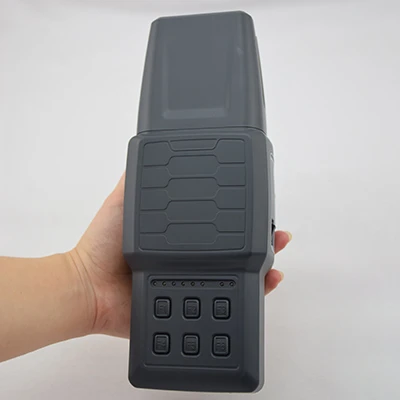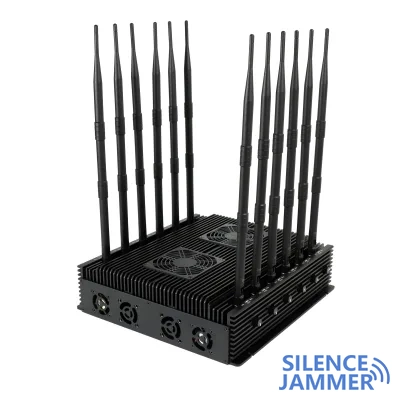In the modern factory environment, the popularity of wireless communication devices, such as mobile phones, Wi-Fi, Bluetooth, etc., is increasing day by day, which brings convenience to work, but may also bring potential safety hazards. In order to ensure the information security and confidentiality of the factory, it is sometimes necessary to use a special signal jammer. Choosing the right signal jammer requires consideration of several factors to ensure its functionality and suitability.

1. Frequency band coverage:
There may be a variety of wireless communication devices in the factory, and the frequency bands covered will also be different. Therefore, when choosing a signal jammer, you need to ensure that it has a wide coverage and can effectively block all possible communication frequency bands in the factory, including but not limited to mobile phone signals, Wi-Fi signals, Bluetooth signals, etc.
2. Shielding effect:
The shielding effect of the signal shielding device is directly related to the actual effect of its use. When choosing a signal shielding device, you need to pay attention to whether its shielding performance is excellent and whether it can effectively block wireless communications within the factory to ensure the safety and confidentiality of the working environment.

3. Adjustability:
Different factory environments may require adjusting the shielding effect at different times or areas, so it is particularly important to choose a signal shielding instrument with adjustable shielding range and power. In this way, the shielding effect can be flexibly adjusted according to actual needs to meet the communication needs under different circumstances in the factory.
4. Legal compliance:
The use of signal shielding devices involves legal and regulatory issues. Therefore, it is necessary to ensure that the selected signal shielding device complies with local laws and regulations and is used legally and compliantly. When choosing, be sure to comply with relevant laws and regulations to ensure legal use.
5. Security and stability:
The signal jammer is a kind of safety equipment. Therefore, it is necessary to choose a product with good quality and stability to ensure long-term and effective operation without adversely affecting the communication equipment and systems within the factory.
6. Ease of use and portability:
Choosing a signal jammer that is easy to operate and easy to carry can improve the convenience and efficiency of use. Especially in factory environments, simple-to-operate, portable signal jammers can better meet work needs.
7. Price and cost-effectiveness:
Finally, the price and cost-effectiveness of the signal jammer need to be considered. Choose a cost-effective product that better meets your factory's needs and enables communications security and confidentiality within a reasonable budget.
To sum up, when choosing a factory-specific signal jammer, you need to consider factors such as frequency band coverage, shielding effect, adjustability, legal compliance, safety and stability, ease of use and portability, price and cost-effectiveness. Only by comprehensively considering these factors can we choose a signal jammer suitable for factory use to ensure the security and confidentiality of communications within the factory.


